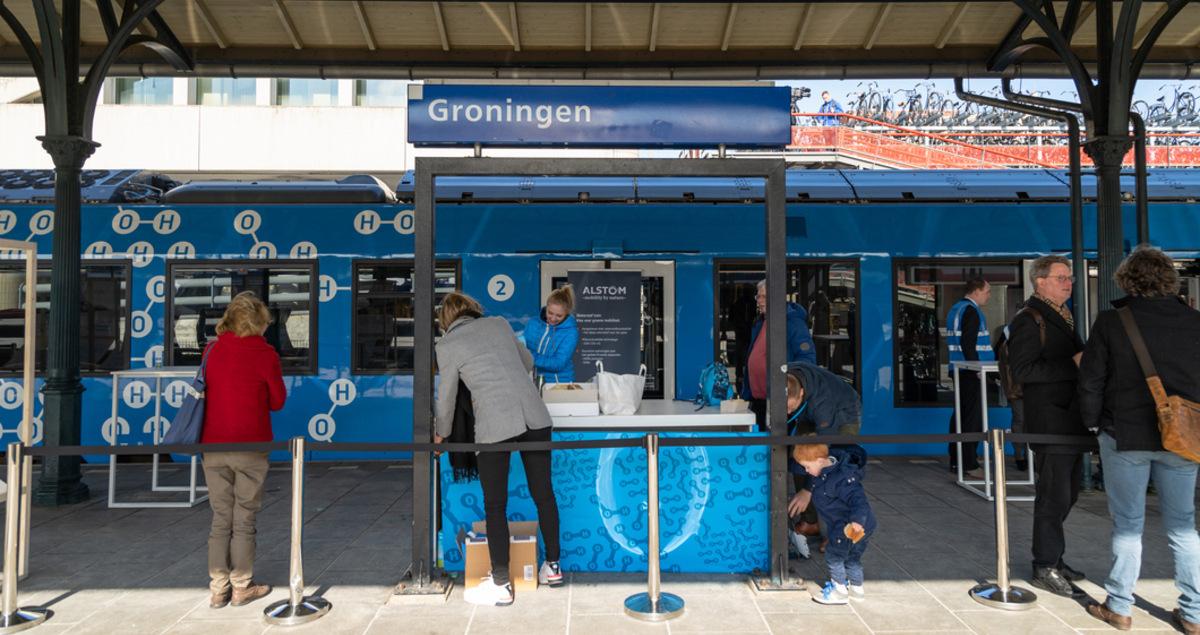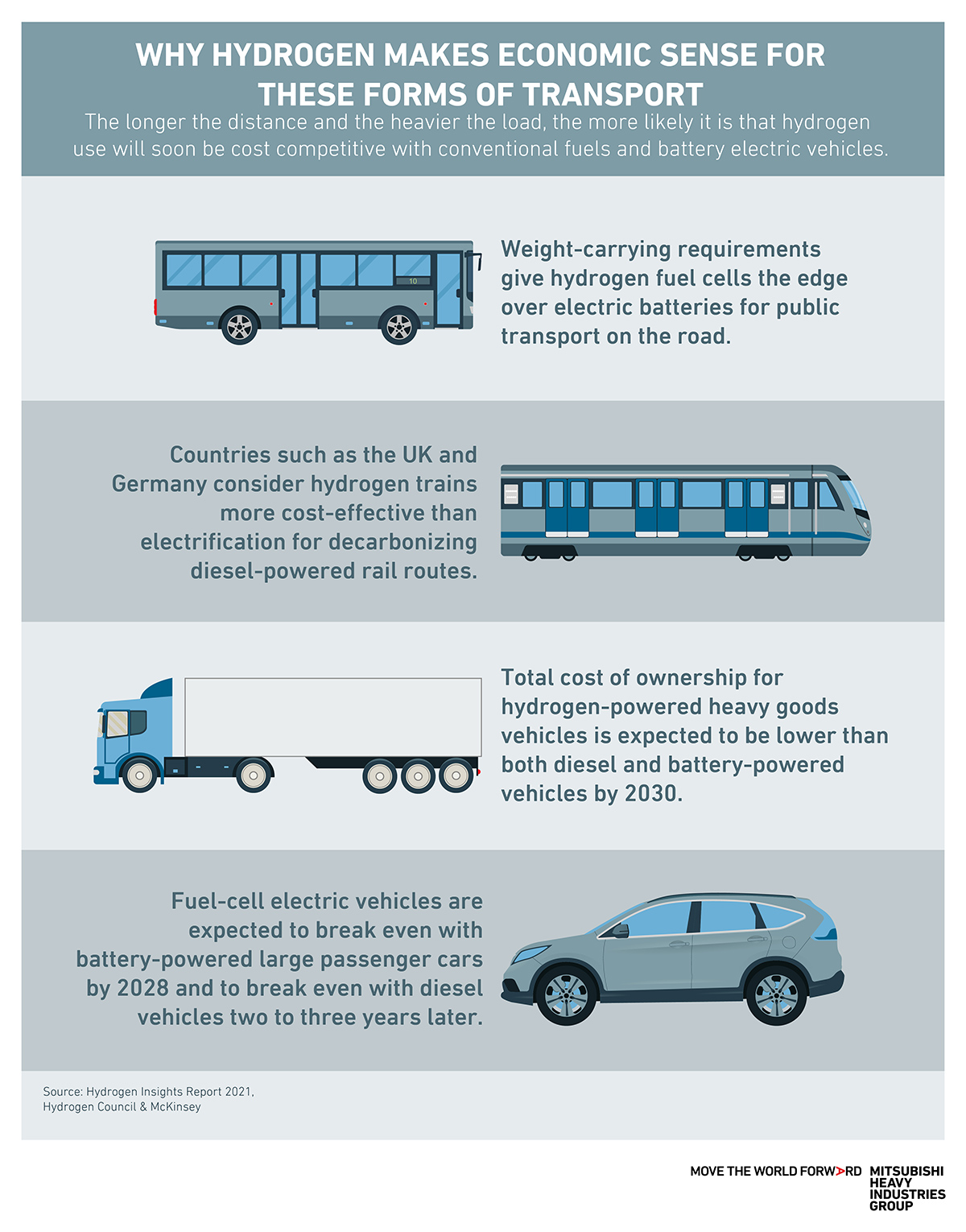Trains, trucks and hydrogen

More than 20 countries have announced a ban on internal combustion engines by 2035. But in hard-to-abate sectors like long-haul transport, electrification is not a straightforward alternative, because batteries may not be able to carry a sufficient charge. That means that hydrogen and other hydrogen contained carbon recycle fuels will have an increasingly important role to play in the decarbonization of the transport sector.
With hydrogen produced from renewable sources expected to be cost-competitive with fossil fuels by 2030, it makes economic sense for the owners and operators of buses, trains, trucks and larger passenger vehicles to turn to it as an energy source. We are already seeing an expansion of hydrogen fueling stations to accommodate demand, with a 20% increase in the number of stations worldwide between 2018 and 2019.

Learn more about MHI Group’s virtual hydrogen factory tour





